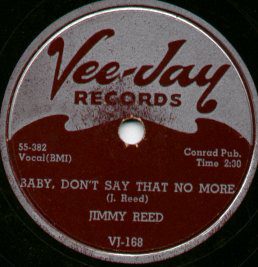Intro
In the 1950’s and 60’s, music was becoming more and more expressive, and as Black Americans became more and more persistent in the fight for racial equality, Black music became bolder. This is seen through artists like Little Richard and James brown. However, a driving force behind their bold sounds and influx of popularity were record labels all over the country, such as Vee-Jay Records. Vee-Jay Records had a profound impact on the American music scene and redefined rhythm and blues while challenging perceptions of race and gender in the U.S.

The Beginning of it All.
In 1953, disk jockey Vivian Bracken and her husband James Bracken had a radical idea: to start a record company and record a small group they found in Gary Indiana. So, the couple borrowed $500 from the bank and began their business. Their group, The Spaniels, had so much immediate success, Vee-Jay Records could not properly distribute all the records. From the start, Vee-Jay was bound for success, but the problems of distribution foreshowed the financial hardships which would ultimately lead to the record label’s demise.
The Climax
Vee-Jay continued to be plauged by success in the years to come. They signed and recorded artists such as Bettye Everett, Little Richard, Jimmy Reed, Wynton Kelly, The Beatles, The Dells, and so many more. Although financially the record label was barely holding on due to poor spending habits by its managers, from the outside things looked better than ever. Vee-Jay Records had become the hot spot for emerging artists looking for a chance on Record Row, and Vee-Jay had even become a worthy competitor for Chess Records which at this point was one of the best places for any artist to record.
Legacy and Ending
Although Vee-Jay had much success, after an eventful 13 years of operation the label had to close its doors. This came shortly after signing who would come to be known as one of the biggest bands on earth-The Beatles. However, money was not handled properly and the company saw its end. Success was the driving factor of this label, but it also caused its ultimate downfall.
Vee-Jay Records set the standard for R&B in the Chicago region, and it helped lay the foundation for Black-owned labels to come. Not only Black-owned but co-owned by a woman which was not expected at this time. In this time of U.S. history, women were expected to stay at home tending to domestic needs, so to see a woman in a position of power such as this was eye-opening for many.


